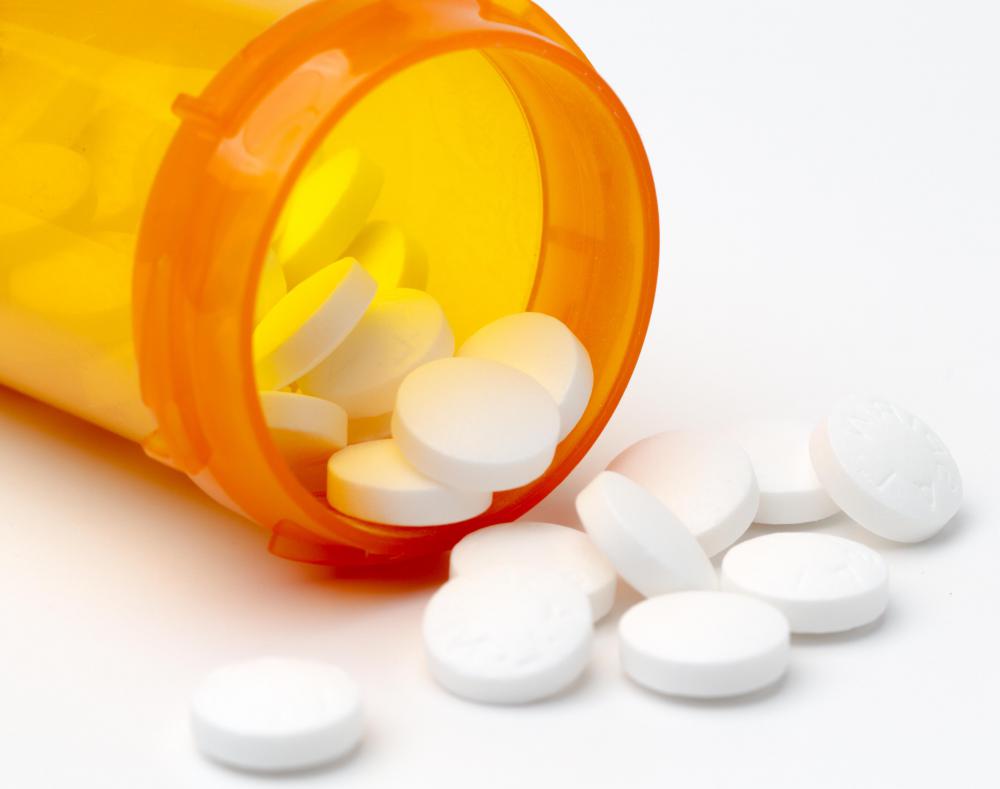At TheHealthBoard, we're committed to delivering accurate, trustworthy information. Our expert-authored content is rigorously fact-checked and sourced from credible authorities. Discover how we uphold the highest standards in providing you with reliable knowledge.
What Are the Best Tips for Reporting Medication Errors?
When reporting medication errors, a clear and concise description of what went wrong is advised by agencies that tabulate drug errors encountered by consumers. The strength, dosage, and full name of the drug used, and how it was obtained, allows a full investigation into the problem. Consumer health reporting agencies also ask for the date the error was discovered, the age of the patient, and the outcome. The identity of a person reporting medication errors is kept confidential, but contact information, such as an e-mail address, permits the organization to respond.
Reporting medication errors might deal with prescription drugs, over-the-counter medications, and medical devices such as intravenous pumps and insulin equipment. Generic drugs are also monitored for errors. These reports aim to improve patient safety and produce a database of common errors shared with the medical community. Educating doctors, nurses, and pharmacists about typical drug errors might prevent mistakes in the future. These agencies usually offer online information to the public about common drug mistakes and the process for filing a report.

When reporting medication errors, a patient might find he or she took the wrong drug or dosage because the doctor who wrote a prescription erred. Patients also may receive unclear instructions on drug usage that causes a bad reaction. For example, a doctor or pharmacist typically alerts the patient if a drug should be taken with food to prevent an upset stomach. Another situation that might lead to an error occurs when a doctor fails to question a patient about allergies or other drugs he or she is taking.

One of the most common mistakes involved in reporting medical errors stems from poor penmanship on written prescriptions or misplaced decimal points. Medications with similar names, but different purposes, might also lead to errors on prescriptions, especially if a doctor is distracted at the time. Abbreviations and symbols used by medical professionals may lead to mistakes that confuse a pharmacist who fills it.

A patient reporting medication errors at a pharmacy might complain of poor labeling that lacks an expiration date. Labels might be unclear after drugs are transferred from a large container into a smaller one. Other mistakes may occur in the mixing and preparation of a medicine, and when the wrong medication is sold. Manufacturers of over-the-counter drugs take responsibility for ensuring labels on products include warnings and instructions for use.
AS FEATURED ON:
AS FEATURED ON:














Discussion Comments
It's a pain in the neck when the doctor prescribes the wrong dosage of some medication. You have to call the office, talk to someone, hope the nurse calls you back, then explain to the nurse what happened. Then you wait until the doctor's office calls the pharmacy to revise the prescription. Totally annoying.
What would be nice is if the doctor would review dosages with the patient before the prescription is ever filled out. That might keep some mistakes from happened, because the patient usually remembers the dosage amounts of his or her medication -- probably better than the doctor does.
One thing about the new trend of doctors printing prescriptions out for the patient to take to the pharmacy: the scrip is legible and the pharmacist can see exactly which drug is being prescribed, and at what dosage. That helps eliminate the penmanship problem, and also helps the pharmacist more easily determine whether the drug prescribed will interact with anything else the patient is taking, so they can clear up any problems before the patient ever picks up the drug.
E-scrips are one facet of electronic records keeping that makes perfect sense to me. It's just more convenient for everyone involved.
Post your comments